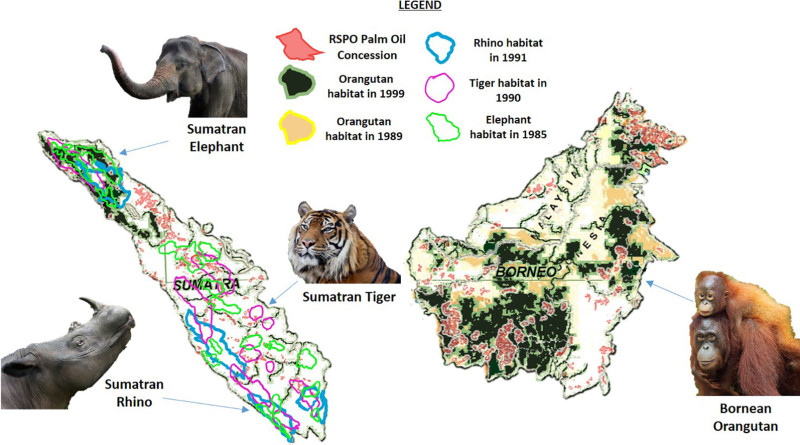News Details

Analyzing over three decades of high-resolution satellite images, Cazzolla Gatti and Velichevskaya argue that the "sustainable palm oil" certification can greenwash the production of this tropical crop.
Following up on a 2019 study ("Sustainable palm oil may not be so sustainable") led by KLI fellow Roberto Cazzolla Gatti, Cazzolla Gatti and Alena Velichevskaya have now analyzed high-resolution satellite images from the past 36 years to evaluate the impact of palm oil expansion on the tropical forests of Sumatra and Borneo. These forests are habitats of endangered mammals such as the Bornean orangutan and the Sumatran tiger, rhino, and elephant.
They conclude that the 'sustainable palm oil' certification cannot ensure that palm oil production is in fact environmentally sustainable. This is because production can be certified as sustainable even when it comes from land recently cleared of tropical forests and habitats for endangered species. Their findings show that current demand for certified palm oil is almost fully supplied by bases and concessions that have, in less than three decades, replaced some of the most diverse tropical forests of the world.
Read more about the paper here: Certified 'sustainable' palm oil fields endanger mammal habitats and biodiverse tropical forests over 30 years
Publication:
Cazzolla Gatti, R., Velichevskaya, A.
Certified "sustainable" palm oil took the place of endangered Bornean and Sumatran large mammals habitat and tropical forests in the last 30 years. Science of The Total Environment (2020). DOI: 10.1016/j.scitotenv.2020.140712
Review in "Mongabay" praising Roberto Cazzolla Gatti´s paper:
"Mongabay", a non-profit conservation and environmental science news platform published a commendatory report on KLI Fellow Roberto Cazzolla Gatti´s new study on certified oil palm plantations and these plantations´ links to past deforestation:
https://news.mongabay.com/2020/08/palm-oil-certification-sustainable-rspo-deforestation-habitat-study/
Roberto Cazzolla Gatti´s new study on certified oil palm plantations and their links to past deforestation (published in the journal Science of the Total Environment) has sparked a debate over whether they can be considered sustainable if they’re established on once-forested land.
Bases on the analysis of highly detailed satellite images from 1984 to 2020 of 251 plantations that were certified by the Roundtable on Sustainable Palm Oil (RSPO), the study demonstrated that certified plantations had replaced the habitats of endangered mammals and biodiverse tropical forests over the last few decades. In addition, some certified oil palm plantations are located in endangered large mammals habitats affecting rhinos, tigers, orangutans and elephants.

